Published Nov 24, 2018
Fan Files: Meet Dr. Francis Smith
Fan Files: Meet Dr. Francis Smith
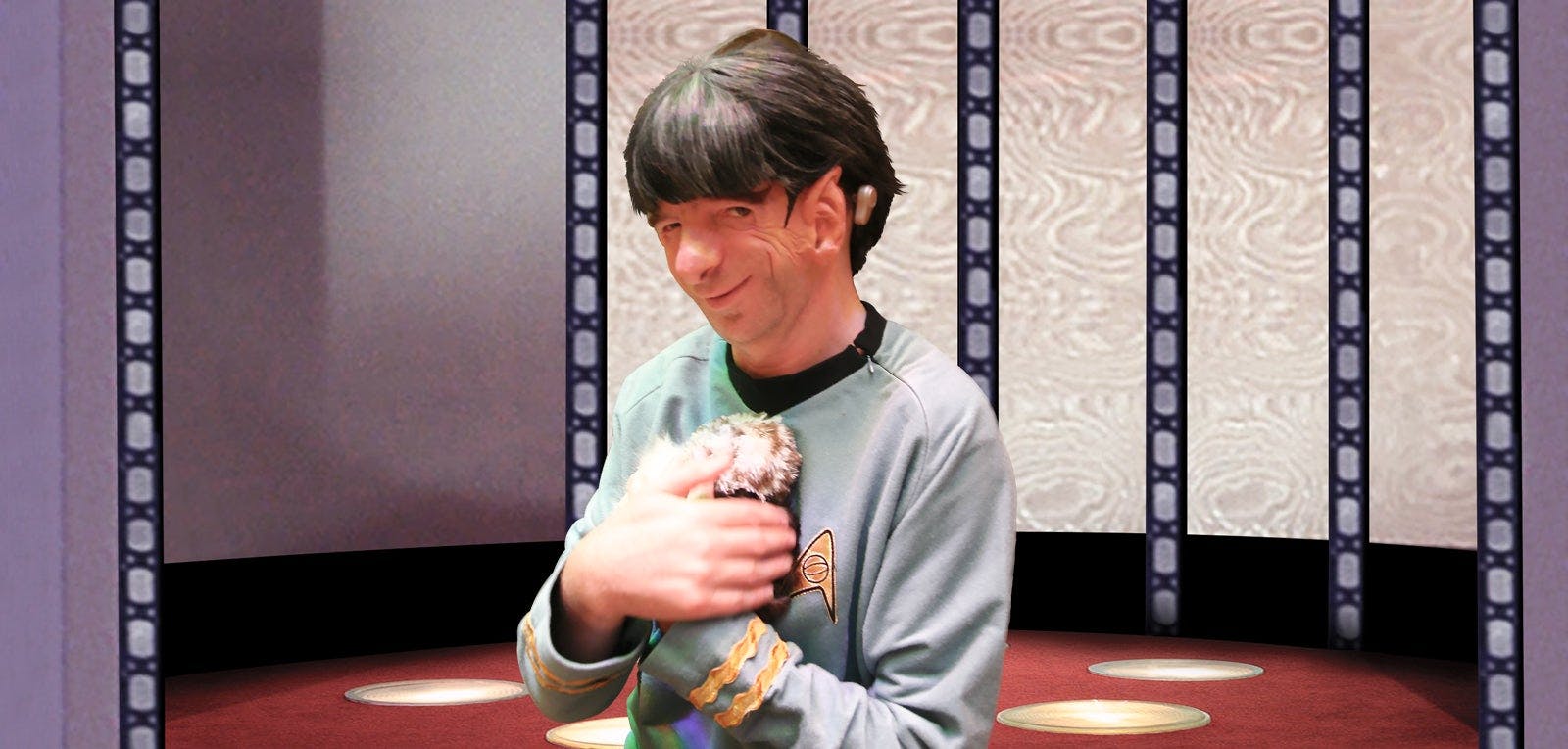
StarTrek.com
My name is Dr. Francis Smith, and I am a living example of craniofacial diversity as celebrated by Star Trek.
I was born with a rare disorder of craniofacial development, Treacher Collins syndrome, in which the bones and tissues of my face failed to develop fully (or not at all). Along with a cleft palate, I was born with no ears (no outer ears, ear canals, eardrums or middle ear bones), eye sockets, or cheekbones. I was also born with severe jaw deformities impinging on my airway. An emergency tracheotomy at birth, due to airway obstruction, saved my life. I was also fed by tube. Soon, I was adopted by parents who had also adopted about 10 other kids over the years with special needs.
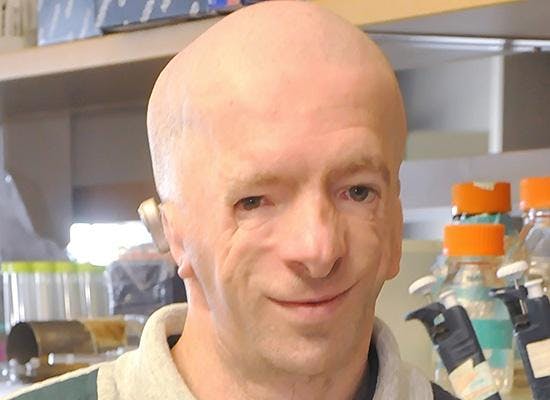
More than 20 facial reconstructive surgeries were required to rebuild my palate, jaws, eye sockets, cheekbones and outer ears. Speech therapy gave me the gift of speech, and I have used bone conduction hearing aids (now implantable ones) to hear. I also had to deal with bullying and other negative social attitudes and judgements based on my facial appearance and challenges. My life is, however, a story of miracles… the ability to play piano and violin despite having no ears (but ironically an ear for music), as well as intelligence and empathy. With my Christian faith and the encouragement and love of my family, friends and colleagues, I have overcome my challenges to build a career of craniofacial medical research and public outreach.
My craniofacial scientific training began at King’s College London in England, and I then went on to earn my PhD in oral and craniofacial sciences at the University of California San Francisco (2012). Since then, I’ve worked at the University of Calgary in Canada and currently at the University of Colorado in Denver. I also travel worldwide doing outreach and speaking for craniofacial anomalies awareness. My life story has recently been published as a book, Wonderfully Made: The Dr. Francis Joel Smith, PhD Story, written by me and Michele DuBroy as co-authors, and was released in August this year.
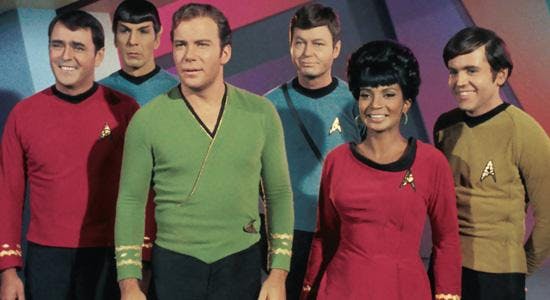
My love of Star Trek began in 1985 (at age 10) when I saw reruns of The Original Series. I was hooked immediately. Spock became (and has remained) my favorite character due to his unique appearance and personality (which resonated with my own near-Vulcan personality). I fell in love with the stories, which involved meeting new people while exploring the galaxy. There were so many interesting faces! In the fall of 1987, I saw a strange new Star Trek with a new Enterprise; it was Star Trek: The Next Generation. Over the years, I saw each new iteration of the TV series come out and followed it religiously. Eventually, I saw all the Star Trek movies, but have tended to favor the TV series over the films. Thanks to Netflix, I keep re-watching all the series.
Back in 2005 and 2007, I attended my first Star Trek conventions. I was living in London then and met Leonard Nimoy (regrettably I never got his autograph), Patrick Stewart and many others. When the official Star Trek cruise (Star Trek: The Cruise) was first announced in August 2015 (for a January 2017 inaugural sailing, with William Shatner hosting), I immediately booked… and rightly so, because it sold out in short order. At that time, I also met some fellow Trekkies in the Denver area, where I live. Having enjoyed the first Star Trek: The Cruise in 2017, I went on the 2018 cruise and have booked the upcoming 2019 sailing (and plan to keep up the tradition as long as it lasts).
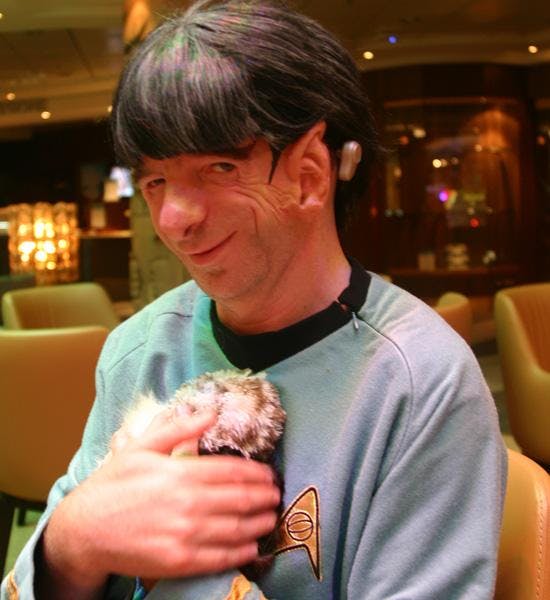
Star Trek has allowed me to celebrate diversity, particularly craniofacial diversity (with my own experience and through the craniofacial diversity among the races encountered by Starfleet). But most importantly, it has more recently given me opportunities for my own outreach efforts, especially on the annual Star Trek: The Cruise. On the cruises, just through meeting other Trekkies (and them meeting me and asking me questions), I’ve been able to reach out and educate about craniofacial anomalies and share my own life experience as an example of overcoming obstacles and adversity and how to celebrate our uniqueness and diversity.
Star Trek has also enhanced my love of science and medicine over my lifetime, by showing me very real possibilities for future technology (and seemingly predicting the technologies we now have, such as mobile phones and ICU bedside monitoring systems). Faster-than-light travel is being discussed as a possibility, so is teleportation (the latter already having been shown in the laboratory on the atomic level). I’ve always known about the real possibility of extraterrestrial life, and Star Trek continues to spark my already fertile imagination regarding intelligent alien life. As a medical scientist, I continue to be fascinated by the medical technology evolving in Starfleet as well as in Star Trek’s alien civilizations.
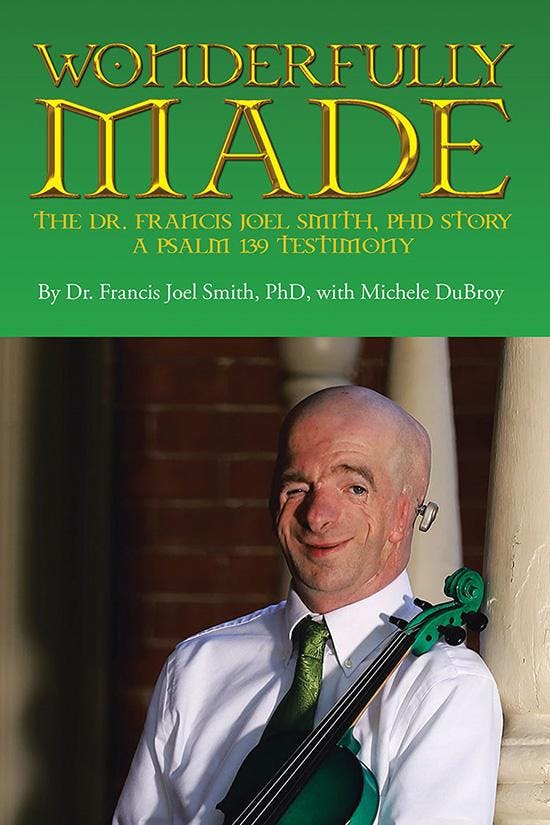
Wonderfully Made is available now at www.amazon.com as a hardcover, paperback and for Kindle.

